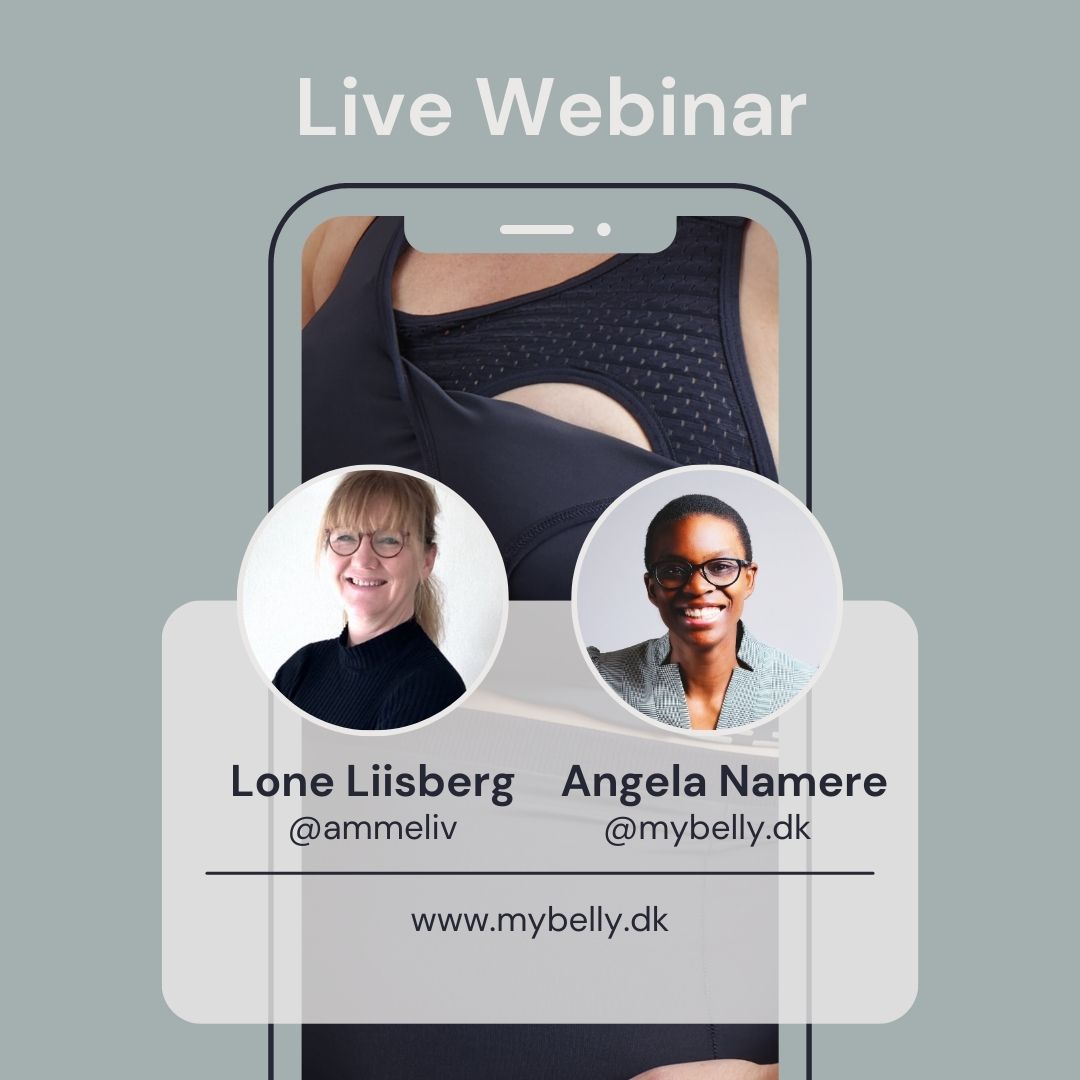
MyBelly's Live with breastfeeding advisor Lone Liisberg.
Share
What can a lactation consultant help you with?
A breastfeeding counselor is a professional who specializes in helping you as a mother breastfeed your baby by offering advice and support in areas such as breastfeeding techniques, milk production, breast problems, bottle feeding, special situations as well as advice and support to create a positive breastfeeding experience for both you and your baby.
Life with Lone Liisberg.
I, Angela Namere, am behind MyBelly and I held a live session with Lone Liisberg, who is a registered nurse, public health nurse and an IBCLC certified lactation consultant, where we talked breastfeeding the most searched questions about breastfeeding on google.
Read more about breastfeeding at Ammeliv.dk
Lone and I talked about, among other things, why it is so important to breastfeed your baby. Lone goes on to say that it has great health benefits for both mother and baby.
Breastfeeding babies has many health benefits for both you and your baby. Breast milk is full of living ingredients, such as stem cells, white blood cells, beneficial bacteria and other bioactive components such as antibodies, enzymes and hormones. These substances help to fight infections, prevent diseases and contribute to the normal and healthy development of your baby. In addition, breastfeeding can also have a protective effect against diseases and conditions in you and your baby. For example, breastfeeding can reduce the risk of childhood asthma, allergies, diabetes and obesity in children, and reduce the risk of breast cancer, uterine cancer and osteoporosis in mothers.
Lone mentions, among other things, "As a breastfeeding consultant, it is simply important to me that a mother who wants to stop breastfeeding does so on an informed basis. This means that it is important that she has received the help she needs before she stops breastfeeding. Sometimes only a few corrections/changes are needed before a problematic breastfeeding becomes a pleasant experience.”
We also talked about how often you should actually breastfeed your baby.
Lone mentions the following : "When I meet new mothers, I often find that they realize how often you should actually breastfeed your baby."
According to the Danish Health Authority, there is no set number of times a baby should be breastfed. However, the Danish Health Authority recommends breastfeeding as often as the child wants and at least 8-12 times a day. A baby who is healthy, fit and thriving needs to be breastfed 8 times a day on average, but it is also normal for a baby to need to be breastfed 7, 9, 12 or 14 times a day. It is important to follow the baby's signals and let the child breastfeed when he shows signs of hunger. There are no fixed rules for how often a baby should be breastfed, and it depends on the child's individual needs.
I ask Lone "can it really be true that a mother should breastfeed every two hours or more often?"
And Lone answered the question as follows : "I hear that question very often. And, yes it is not abnormal and more often it is necessary to maintain a milk production.”
Naturally, we also talked about physical training during pregnancy and after birth.
Lone mentions, among other things, "It is always good to be in good physical shape, and not least before a period when it is as hard on the body as pregnancy, childbirth and breastfeeding.
You can easily continue training during pregnancy and after the birth. The message is: listen to your body and stop if you feel discomfort - discuss it with your doctor if you have doubts about whether it is too much."
We ended by talking about pregnancy, breastfeeding and alcohol, where the Danish Health Authority advises against consuming alcohol during pregnancy.
Lone says "During the breastfeeding period, the Danish Health Authority also advises to be restrained with regard to the consumption of alcohol. As a starting point, the milk contains the same alcohol content as the blood, and this means that it does not help to milk out and discard the milk."
I ask, among other things, whether it is allowed during the holidays and Lone says the following: "Consume alcohol with care. Feel free to wait to breastfeed until 2 - 3 hours have passed after you have consumed an item - and enjoy it with a clear conscience"
